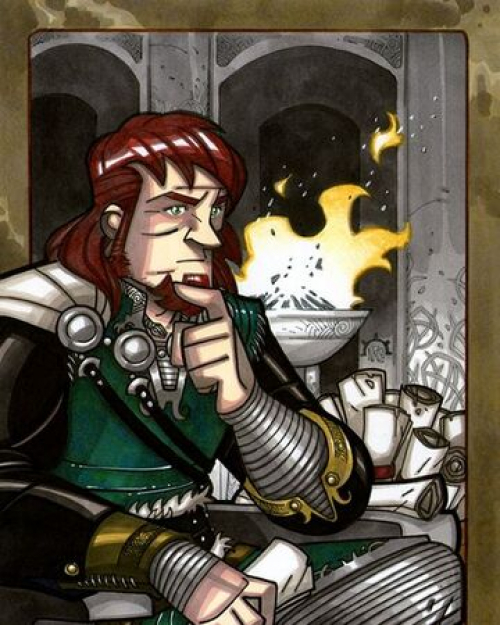Spit in a tube

It all begins when I send off my spit in a tube to Dublin. Don’t be alarmed, it’s only the procedure for getting my DNA analysed. You simply drool into a little plastic funnel and the teaspoon of liquid needs to come up to a wavy black line marked on the tube. Spit, it seems, has often possessed magical properties. In Norse mythology, for example, to commemorate a peace treaty drawn up amongst the Æsir and the Vanir, the rival gods spat into a vessel. Kvasir – a poet and the wisest of all men – was created from this commingling of saliva.
To ensure that I don’t screw everything up, I double check the procedure outlined in the instruction booklet that comes with the Ancestry DNA kit. First of all, I go online and activate my 15-digit code. Only then do I fill up the tube to the black line and replace the funnel with the cap, which contains a pale blue stabilising solution. Once it’s tightened I shake the tube for a good ten seconds so that everything mixes together as it should. Finally I place it in the plastic bag and seal it with an adhesive strip. Now we are good to go and all that remains is to insert the sample in the prepaid packet and drop it in the mouth of the nearest post box. Job done.
With the virus holding sway, there’s going to be a delay of several weeks before my results are available. In the interim I’m motivated to make a few preliminary searches on the Internet, largely related to genealogical matters. To begin with I explore my German grandmother’s maiden name of Segeroth. It’s quite an unusual surname and I end up hazarding an educated guess at its etymology. The two components of this compound noun appear to be derived from the words Sieger and rot, which are German for warrior and red. But when I google Segeroth I’m intrigued to discover that there’s a district in Essen with that name. The fact that Essen is only twenty miles north of Düsseldorf – my mother’s birthplace – is enough for me to read the Wikipedia article. It’s in German, but that’s no problem because I’m bilingual.
The entry begins: “From the end of the nineteenth to the middle of the twentieth century, Segeroth was an industrial working-class district in the city of Essen.” By 1930 the population had swelled to over 40,000, and many of its inhabitants would have serviced the massive Krupp factory, which would later produce armaments during the war such as the famous Tiger tank. Despite the rise of fascism, Segeroth remained a stronghold of the KPD (Communist Party of Germany) even throughout the whole of the Nazi period. It sounds like the sort of place in which I’d have been at home, waving a red flag emblazoned with a gold hammer and sickle.
Even though I’m digressing and getting well ahead of myself, you can see how the free association of ideas that the Internet provides can be a source of real pleasure and enlightenment. The way I see it, had I not casually googled Segeroth I would never have known about the area in Essen. In any case, isn’t it mind-boggling to have such a powerful resource at one’s fingertips? Unlike Doctor Faustus, I’ve no need of Mephistopheles to take me on a grand tour. Instead I’m able to range the globe at will from the comfort of my study. My German grandfather’s surname, for example, was Eckert, and that makes me wonder whether the pioneer of the modern computer – John Adam Presper Eckert – might be a distant relative. After all, he was even born in an area of Philadelphia known as Germantown!
When the email eventually arrives shortly after Christmas to say that my ancestry results are available I can’t wait to see what the outcome is. To be honest, it’s pretty much as I expect: I’m 35 per cent English, 29 per cent Germanic and 29 per cent Scottish. But there are two lovely surprises in store. It turns out that I’m also 4 per cent Irish and 3 per cent Norwegian. Perhaps that explains why I’m such a fan of Celtic literature and the Icelandic and Scandinavian sagas. Maybe there’s even a wee bit of Kvasir in my saliva as well.

Michael Jarvie
Michael Jarvie is a working-class writer from Darlington in County Durham. He is the author of The Prison, a collection of short stories, and Black Art, a novel.
